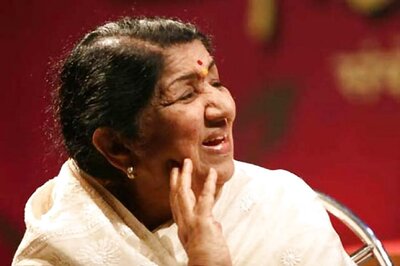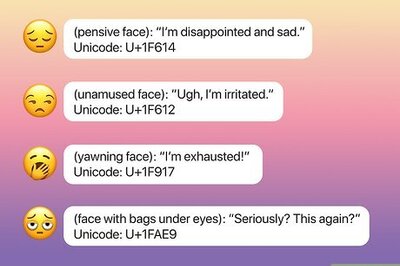
views
The year was 2004, almost ten years after the release of K Balachander’s movie ‘Duet’. Saxophonist Kadri Gopalnath, whose career in film music started with Duet, had come to Tripunithura to perform at a concert organised by a local music group.
He was smiling intermittently. There was an AR Rahman concert in Kochi the next day. Everybody in the city was trying to scrounge for tickets for the concert. “I’m not Kadri, I’m the kaattu (wind) in Malayalam. Kaattu Gopalnath”, he smiles again. “I can never be a storm”.
He suddenly whipped out the saxophone, which had been kept in a bag on the bench and started playing the song ‘Kuzhaloothi kaliyadi’ in Kambhoj raga. After about five minutes, the wind blew away. Someone offered Gopalnath dried ginger mixed in sugar water.
“Today, let’s talk about the saxophone, I won’t talk about films,” he told me.
I had only intended to write a feature story of four paragraphs for the city page of the newspaper I was working with at the time. Unfortunately, I had forgotten to carry my recorder and was only accompanied by a photographer.
After narrating three to four sentences of his story, Kadri Gopalnath started playing his saxophone. It was like a one-and-a-half hour-long movie that spun the story of the ups and downs of Indian music history.
It was only ‘Janani Janani’ in Revathi Raga that he played in its entirety. He just hummed Gaula and Nalinakanthi ragas in bits somewhere in between our conversation.
AR Rahman shot to fame much before ‘Duet’ was released. ‘Roja’ had been released before Duet and was followed by Santhosh Sivan’s ‘Yodhya’. 'Duet' is a remarkable film and has a background score littered with saxophone bits. After the success of the ‘Duet’, AR Rahman won praises from everywhere for his music in the Prabhu-starrer.
Rahman visited Belgium, where the saxophone originally belongs to, multiple times. It was Kadri Gopalnath who had played every saxophone note in the film.
The reward for Kadri’s concert at Tripunithura had been a Rs 35,000, air ticket from Bengaluru and a double room in White fort Hotel in Vyttila. On the other hand, expenses for Rahman’s Kochi show had been estimated at Rs 40 lakh.
Kadri, among the first people to adapt the saxophone, a Belgium instrument, for Carnatic music, told me this story that day.
“If I had played my dad’s Nagaswara, I would’ve earned only Rs 5000 for a concert. Since I used saxophone, I got Rs 35,000. When we get a rewarded that is seven times more than what we expect, we don’t really think about those who get ten times more of what we get.”
In India, the saxophone has always been synonymous with Kadri Gopalmath. Even though cassettes, CDs and pen drives have disappeared, Kadri’s music lives on same untouched by any synthesizer.
That day, Kadri came towards the bike too to while I was leaving to tell the story. “Have you heard about a musician named RS Mani? He was in Thiruvananthapuram for the longest while. No one in the world has learned as many songs as he had sung. He would perform each Raga in each venue differently. But nobody remembers RS Mani. But his son-in-law Hariharan, who learned from him, went on to become a big singer. When Semmangudi Srinivasa Iyer died, he left behind music for all his three sons. Since Madurai Mani Iyer used to sing for Akashvani, atleast those records are still around.”
(Padma Shri awardee and noted saxophonist Kadri Gopalnath breathed his last in the early hours of Friday. Senior Journalist Anoop Parameswaran remembers him. This article was originally written in Malayalam and published by News18 Kerala.)




















Comments
0 comment